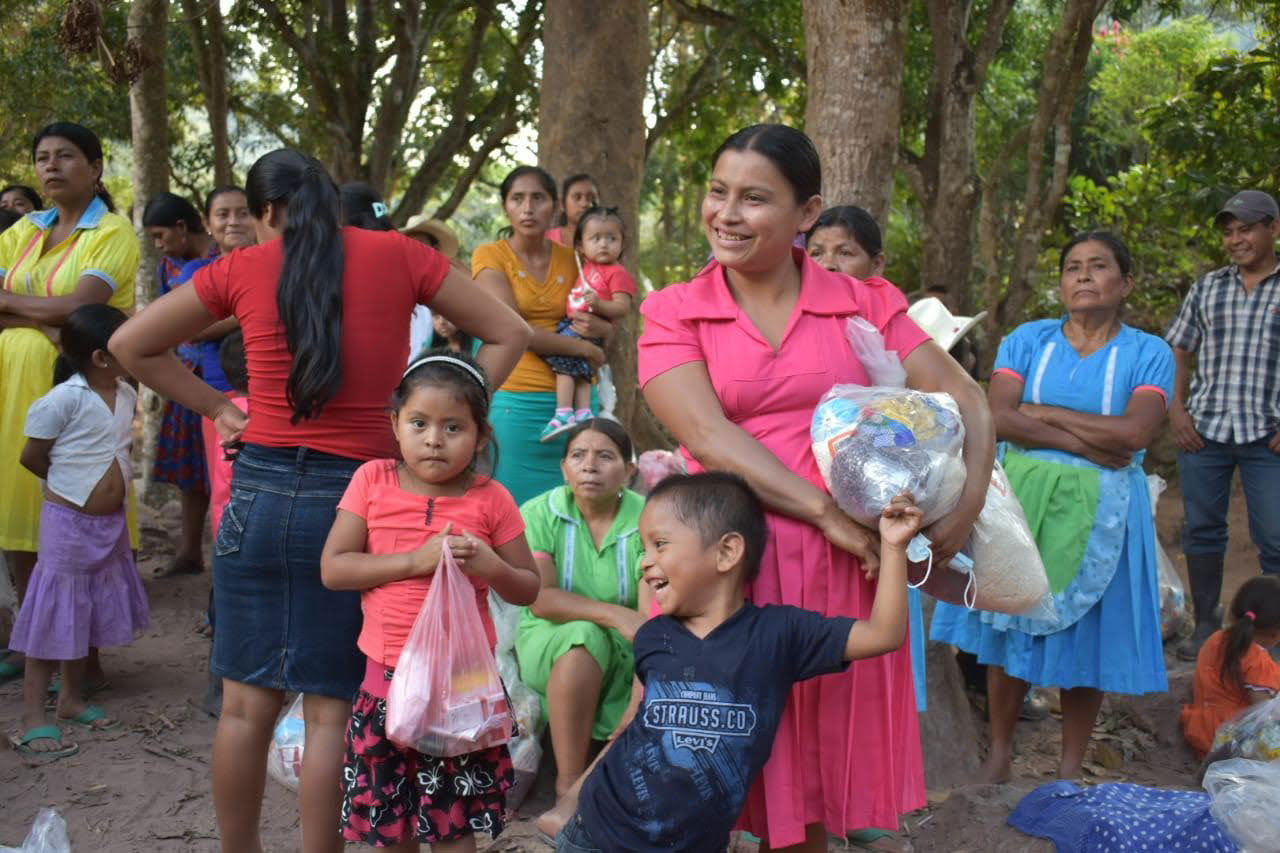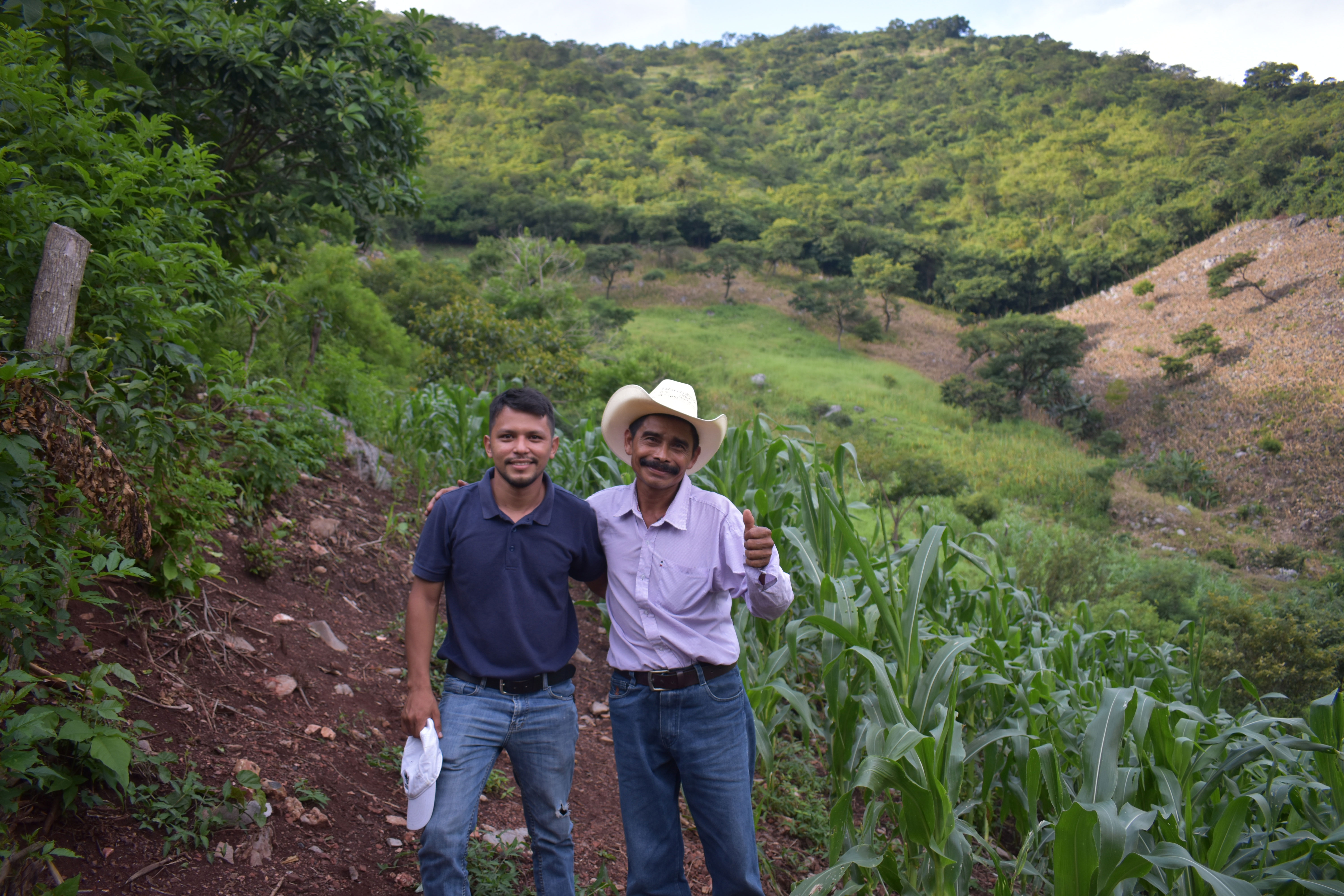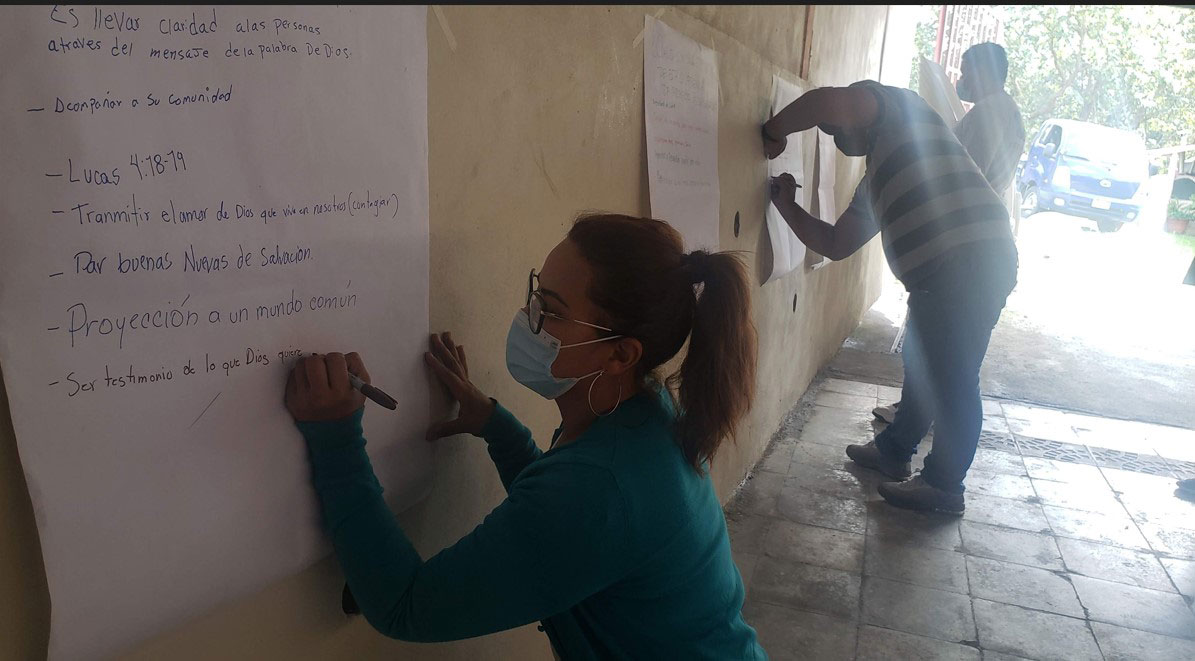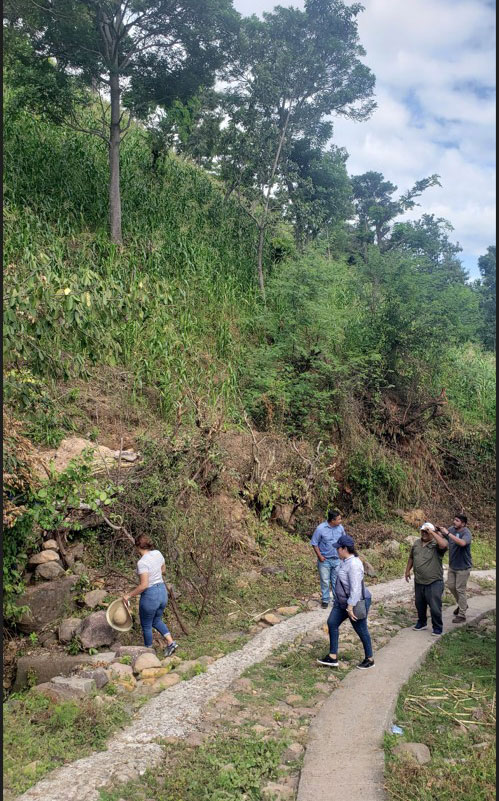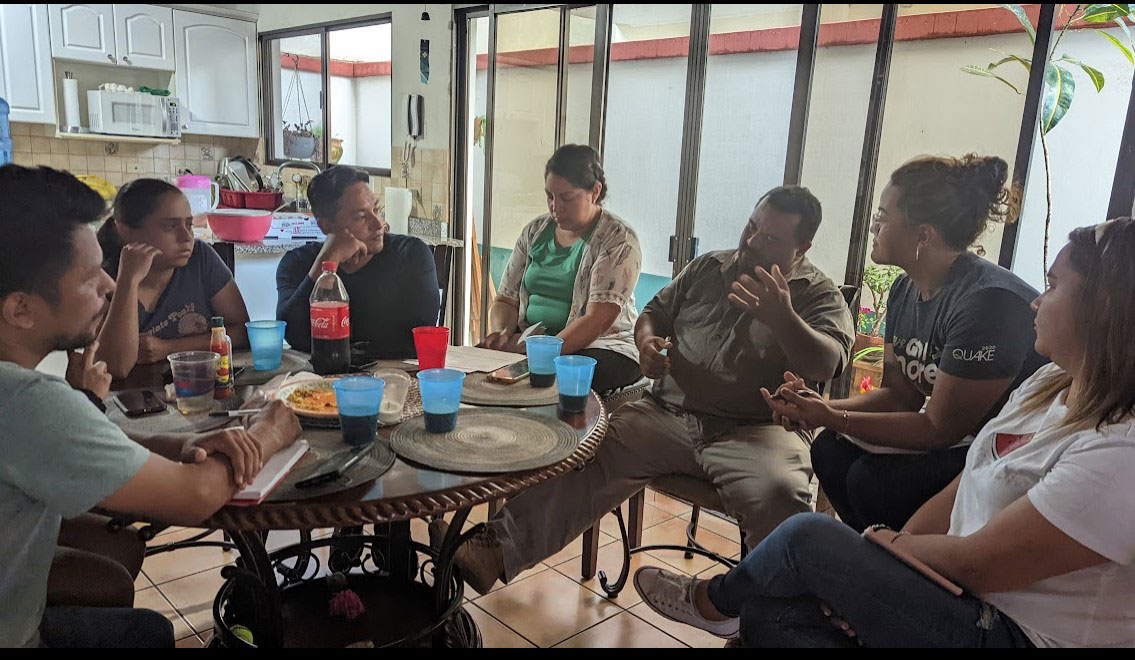A Letter from Dori Hjalmarson, serving in Honduras
Summer 2022
Write to Dori Hjalmarson
Individuals: Give online to E132192 in honor of Dori Hjalmarson’s ministry
Congregations: Give to D500115 in honor of Dori Hjalmarson’s ministry
Churches are asked to send donations through your congregation’s normal receiving site (this is usually your presbytery)
Subscribe to my co-worker letters
Dear friends,
Jesus … said, “Listen to this! A farmer went out to scatter seed. As he was scattering seed, some fell on the path; and the birds came and ate it. Other seed fell on rocky ground where the soil was shallow. They sprouted immediately because the soil wasn’t deep. When the sun came up, it scorched the plants; and they dried up because they had no roots. Other seed fell among thorny plants. The thorny plants grew and choked the seeds, and they produced nothing. Other seed fell into good soil and bore fruit. Upon growing and increasing, the seed produced in one case a yield of thirty to one, in another case a yield of sixty to one, and in another case a yield of one hundred to one.” He said, “Whoever has ears to listen should pay attention!” Mark 4:1-9 (CEB)
I really love this parable. We sometimes call it the parable of the “Good Sower,” but the sower doesn’t seem very good at all. I am not a farmer or even a very good gardener. But I have watched some. Farmers do not scatter seeds randomly. How stupid they would be! The farmers and gardeners I have watched are very careful sowers. They count out the seeds, the right kind in the right kind of soil, at the right time of year. They make a hole the right size, gently cover the seeds, and pour on the right amount of water. They watch and wait. They chase away the birds and rodents, they irrigate, shade the tender sprouts, tie them to stakes, and pull out choking weeds.
This is not the sower we see in this parable. This sower sows indiscriminately, showering all kinds of ground with the seed, and apparently does not mind too much knowing that she will lose three-quarters of her crop before it even sprouts.
Late last year I wrote about a disaster response effort mounted by the Honduras Presbyterian Church that I serve, in the aftermath of Hurricanes Eta and Iota, which struck Honduras within one week of each other in November 2020. During that response, Honduran volunteers began meditating on this parable, as well as on a study from Costa Rica’s Latin American Biblical University called “Church, Community and Mission.”The Honduran church, in its 65 years of existence, has generally been the recipient of mission, the needy side of a relationship between U.S. organizations and Honduran communities. The church has few financial resources and no experience mounting a mission and service effort on its own. And we were nine months into the COVID-19 pandemic. Many of our members had lost jobs and loved ones. Our churches were struggling to survive.
Nevertheless, the idea that our prayers and faith had to suffice in the face of natural disaster was not good enough for the 40 Presbyterian volunteers who gathered to visit a mountainside community three weeks after the hurricanes had struck. These 40 volunteers included nurses, a psychologist, a pharmacist, pastors and teachers, many of whom had been educated with Presbyterian scholarships and who had spent their youth accompanying U.S. groups doing short-term projects in Honduran communities.
By the end of 2021, the Honduran Presbyterian Church had put on medical clinics, including psychological workshops, and food distributions in four different communities affected by Hurricanes Eta and Iota. They had given away 10,000 bags of weekly food supplies and treated around 1,000 patients. In the middle of all that work, we began reflecting on this parable of the good sower.
Who is God in this parable? We thought maybe humans are the sower or Christians. But when we looked carefully, we realized that this sower is acting not in a human way, but in a God-like way, scattering seed indiscriminately, graciously and abundantly.
Who are we in this parable? The seeds? Scattered to serve among the rocks and thorns, sometimes attacked, sometimes choked by sin and greed? No, we concluded, we are the soil that is receiving the seed, the abundantly given and free grace of God. How do we know what kind of soil we are? By the fruit we produce in the end. How can we become good soil?
Well, that is the question. How does bad soil become good in the real world? The farmer changes it. The farmer adds fertilizer, directs water, removes stones and weeds, and protects the soil from invaders. It is hard, back-breaking work. I have seen Honduran farmers sow corn and sorghum on the literal sides of cliffs, walking up 50-degree hillsides to plow, haul water and carry harvests on their own backs. Imagine that God is putting that much work into you and me, to transform us, to cultivate us, to grow us into fertile ground for the seeds of grace.
Through the post-hurricane mission effort, God has been cultivating me and the Honduras Presbyterian Church. In November 2021, some of the hurricane-response volunteers completed a pilot project to aid in replanting crops that had been lost in the hurricanes. And they have formed a mission organization, called “El Buen Sembrador,” that will plan and direct the social action of the church, trying to redefine what the church’s relationship with the larger community will be. A subgroup will focus on medium- and long-term church-based health programs with local professionals that we hope will be more sustainable than short-term annual medical clinic events driven by foreign volunteers. The church has come to believe that God is calling them to bear fruit and to see the world—not only their churches—as the recipients of God’s abundant grace and love.
Dori
Please read the following letter from Rev. Mienda Uriarte, acting director of World Mission:
Dear Partners in God’s Mission,
What an amazing journey we’re on together! Our call to be a Matthew 25 denomination has challenged us in so many ways to lean into new ways of reaching out. As we take on the responsibilities of dismantling systemic racism, eradicating the root causes of poverty and engaging in congregational vitality, we find that the Spirit of God is indeed moving throughout World Mission. Of course, the past two years have also been hard for so many as we’ve ventured through another year of the pandemic, been confronted with racism, wars and the heart wrenching toll of natural disasters. And yet, rather than succumb to the darkness, we are called to shine the light of Christ by doing justice, loving kindness and walking humbly with God.
We are so grateful that you are on this journey as well. Your commitment enables mission co-workers around the world to accompany partners and share in so many expressions of the transformative work being done in Christ’s name. Thank you for your partnership, prayers and contributions to their ministries.
We hope you will continue to support World Mission in all the ways you are able:
Give – Consider making a year-end financial contribution for the sending and support of our mission personnel (E132192). This unified fund supports the work of all our mission co-workers as they accompany global partners in their life-giving work. Gifts can also be made “in honor of” a specific mission co-worker – just include their name on the memo line.
Pray – Include PC(USA) mission personnel and global partners in your daily prayers. If you would like to order prayer cards as a visual reminder of those for whom you are praying, please contact Cindy Rubin (cynthia.rubin@pcusa.org; 800-728-7228, ext. 5065).
Act – Invite a mission co-worker to visit your congregation either virtually or in person. Contact mission.live@pcusa.org to make a request or email the mission co-worker directly. Email addresses are listed on Mission Connections profile pages. Visit pcusa.org/missionconnections to search by last name.
Thank you for your consideration! We appreciate your faithfulness to God’s mission through the Presbyterian Church (U.S.A.).
Prayerfully,

Rev. Mienda Uriarte, Acting Director
World Mission
Presbyterian Mission Agency
Presbyterian Church (U.S.A.)
To give, please visit https://bit.ly/22MC-YE.
For it is the God who said, ‘Let light shine out of darkness,’ who has shone in our hearts to give the light of the knowledge of the glory of God in the face of Jesus Christ. 2 Corinthians 4:6
![]() You may freely reuse and distribute this article in its entirety for non-commercial purposes in any medium. Please include author attribution, photography credits, and a link to the original article. This work is licensed under a Creative Commons Attribution-NonCommercial-NoDeratives 4.0 International License.
You may freely reuse and distribute this article in its entirety for non-commercial purposes in any medium. Please include author attribution, photography credits, and a link to the original article. This work is licensed under a Creative Commons Attribution-NonCommercial-NoDeratives 4.0 International License.
